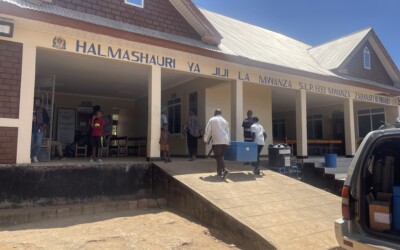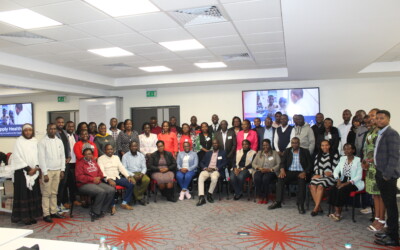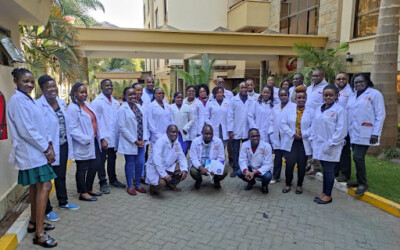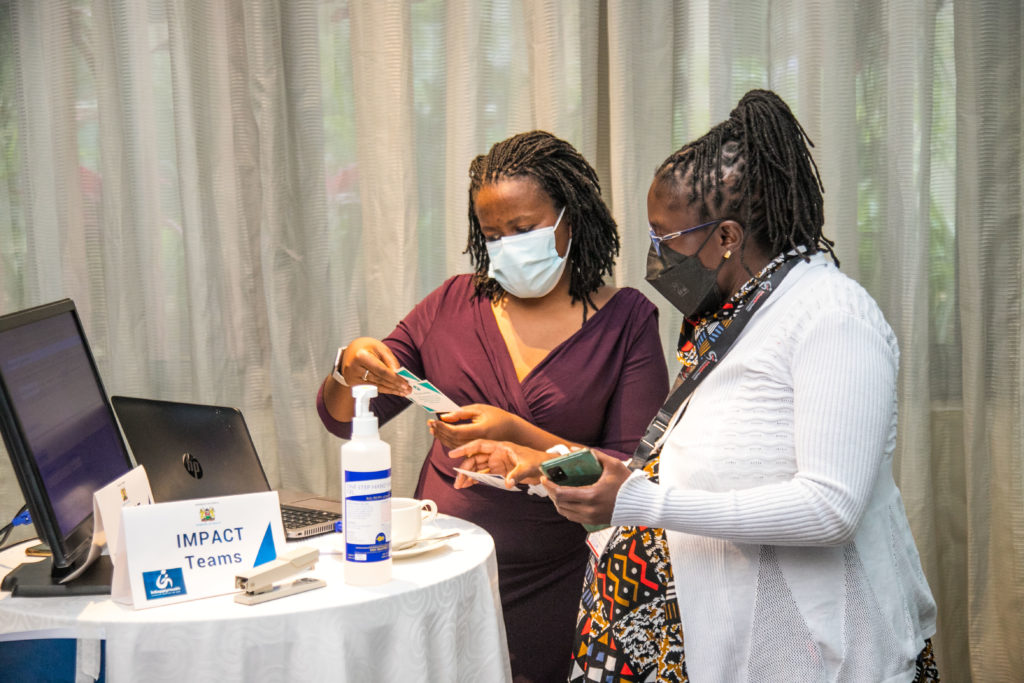
In a world that is still reeling from the COVID-19 pandemic, supply chain professionals must employ technology and innovative ideas to streamline supply chain processes, improve efficiency, and meet ever-increasing health care needs. New tools and solutions are generating data that need to be analyzed and available for health care workers to make day-to-day and strategic planning decisions.
Over the last three years, inSupply Health has worked with nine Kenyan counties (Turkana, Samburu, Wajir, Mandera, Siaya, Trans Nzoia, Mombasa, Nairobi, and Nyeri) to understand and demonstrate how better use of data, guided by quality improvement processes and appropriate digital tools, can strengthen the performance of family planning, immunization, cold chain, and community health supply chains across Kenya and Tanzania.
inSupply Health, in collaboration with the national and county ministries of health (MOH) in Kenya, held a national dissemination workshop on “Building Stronger Supply Chains with Data” to showcase the accomplishments of its projects: Data Use for Supply Chain Strengthening, Supply Chain Alternatives for Last Mile Equity (SCALE), and other cStock projects. Through these, inSupply Health aimed to create models for operationalizing, scaling, and sustaining the people and process components of public health supply chains to increase commodity availability. inSupply’s approaches, detailed below, empowered health workers to value and use real-time data to improve supply chain performance in a less burdensome and more sustainable manner.
IMPACT Teams
The Information Mobilized for Performance Analysis and Continuous Transformation (IMPACT) approach is a system of interconnected teams of people across functions and disciplines who meet routinely and are trained to develop, set, and interpret targets for key supply chain indicators. They are encouraged to follow a structured, problem-solving process and use their data to make operational and strategic decisions to improve supply chain performance. Implemented across all nine counties, IMPACT Teams rely on the Indicator Tracking Tool, a user-friendly, action-oriented dashboard that analyzes and visualizes data from the Kenya Health Information System.
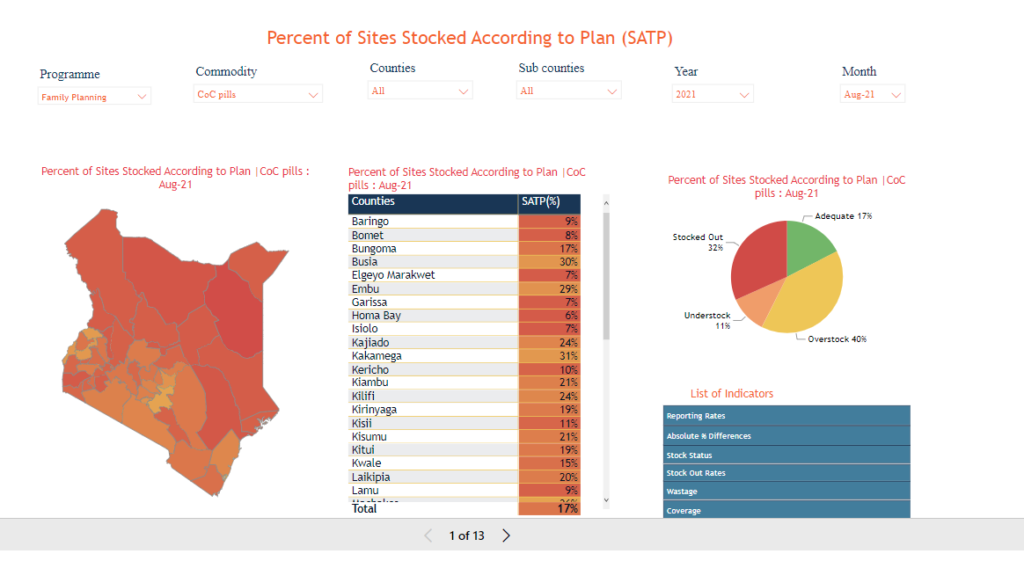
According to Dr. Mohamed Hanif, the county pharmacist of Mombasa,“The IMPACT team model brings people together from different cadres, demonstrating the multidisciplinary connection from all levels where teams have been able to own the data, and improve reporting rates and quality.”
eLearning Packages
Building peoples’ capacity is a critical component of IMPACT Teams. Its e-Learning Packages are self-paced modules that target four core competencies, allowing the teams to pursue professional development and improve service delivery.
cStock
inSupply Health implemented cStock, a mobile reporting and resupply system for community health volunteers (CHVs), in five of the nine counties. Originally launched in Siaya and updated in collaboration with CHVs and their supervisors (community health assistants [CHAs]), cStock facilitates commodity management to inform supply decisions and performance monitoring. cStock is used by 281 CHAs and 3,635 CHVs, and reporting rates are consistently above 80%, (see graph below), greatly facilitating the management and flow of commodities to remote communities.
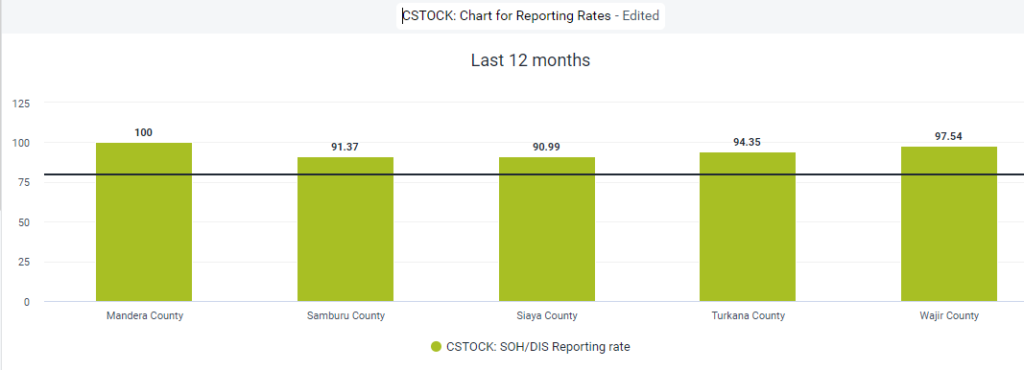
As Dr. Gilchrist Lokoel, director of medical services for Turkana County, said, “Having timely digital reporting with the capability of knowing which facility is constrained with various commodities… being able to take corrective action at that point in time has actually made me comfortable because I can serve the people of Turkana from wherever I may be.”
Recognition
The Building Stronger Supply Chains with Data workshop was attended by all nine county health management teams, collaborating partners, and national MOH representatives.
During the workshop, inSupply Health recognized and rewarded IMPACT Teams that demonstrated exceptional performance in reporting rates, technical competency, and improvement in different areas and completion of the e-Learning packages.
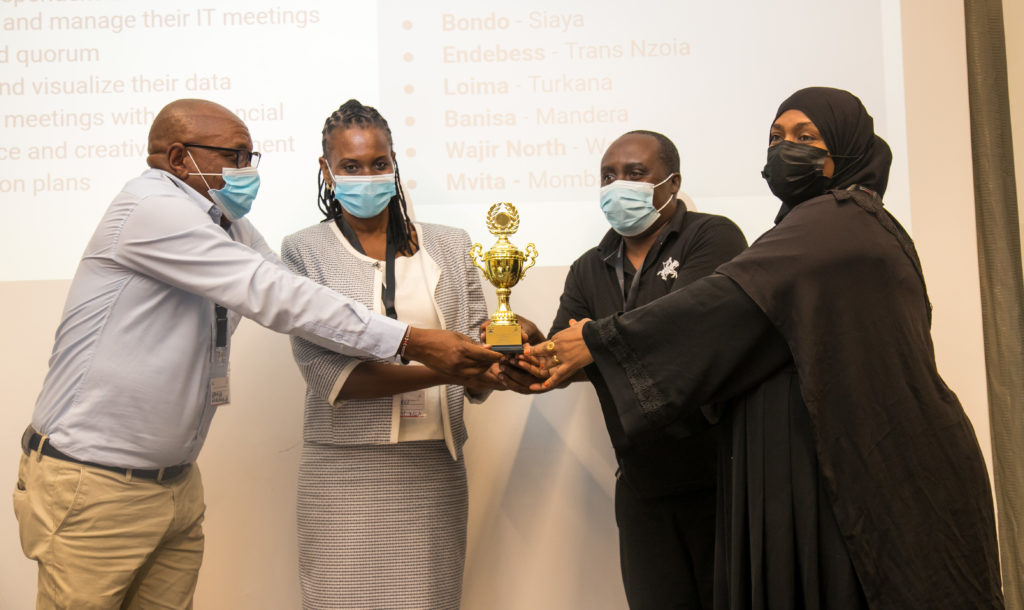
| Award | Winner |
| Virtual Learning Packages | Samburu & Trans Nzoia Counties |
| Best IMPACT Teams on Learning Packages, per county | Tarbaj & Embakasi East/South Sub-counties |
| Technical competency | Endebess sub-county, Trans Nzoia |
| Absolute percentage difference | Mukurweini Sub-county, Nyeri Mandera North Sub-county, Mandera |
| IMPACT Teams processes | Wajir North Sub-county, Wajir |
| Sustainability and institutionalization | Banissa Sub-county, Mandera Ruaraka & Roysambu Sub-counties, Nairobi Mukurweini Sub-county, Nyeri Samburu Central Sub-county, Samburu Bondo Sub-county, Siaya Endebess Sub-county, Trans Nzoia |
Sustainability
The leaders at the workshop emphasized the importance of processes and systems to ensure that financing, equipping, and capacity building in various areas continue to produce better outcomes. Counties are expected to institutionalize the approaches by incorporating support for IMPACT Teams into their annual work plans.
“Nairobi County, in collaboration with inSupply, has embraced sustainability by working with existing structures from county to facility level, paving the way for the county to ensure that the gains made will be maintained even after the project ends,” said Ms. Beatrice Bwabi, quality assurance Nairobi Metropolitan Services stated that Nairobi County.
Looking ahead, the pressure to be more efficient and collaborative is rising, and health care systems must continue to cultivate a data use culture to respond. More resources, skill building, and data collection and analysis methods must be invested to ensure that the growing range of products and services are available to people who need them.
